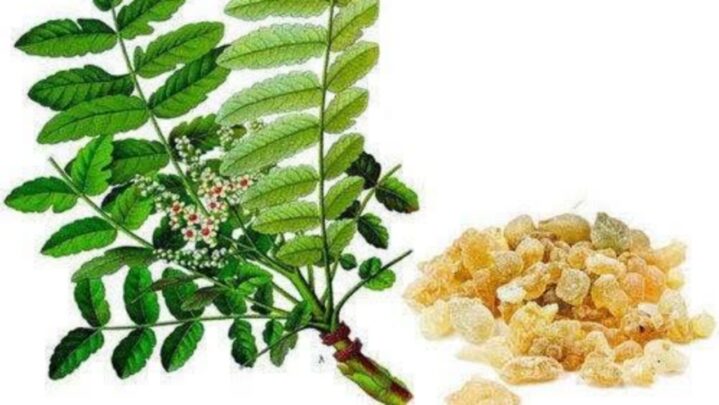Asthma.
Early study suggests that ingesting Boswellia extract can help patients with asthma breathe better, have fewer abrupt attacks, and have fewer symptoms.
Brain tumours.
Boswellia may help people with brain tumours, according to preliminary research. The use of 4200 mg of Boswellia per day appears to shrink tumours.
Cluster headache.
Boswellia may help to reduce the frequency and severity of cluster headaches, according to limited evidence.
Inflammatory bowel disease that affects the colon.
According to preliminary studies, ingesting 1200 mg of Boswellia daily for 6 weeks boosts the rate of remission in persons with collagenous colitis.
Ageing skin.
Applying Boswellia lotion to the face improves fine surface wrinkles, roughness, and UV damage in women with sun-damaged skin, according to preliminary studies. However, skin colour and wrinkles do not improve.
Crohn’s disease is a chronic inflammatory bowel illness.
Early study suggests that taking Boswellia extract can help with Crohn’s disease symptoms. Other, more reputable study, on the other hand, finds no benefit.
Diabetes.
According to studies, consuming 800 mg of Boswellia daily after a meal lowers blood sugar and cholesterol levels in type 2 diabetic patients.
Joint discomfort.
Early research suggests that taking a product containing glucosamine sulphate, methylsulfonylmethane, white willow bark extract, ginger root concentrate, Boswellia extract, turmeric root extract, cayenne, and hyaluronic acid three times daily for eight weeks reduces joint pain. However, this substance appears to have little effect on joint stiffness or function.
Trauma to the brain.
According to preliminary studies, ingesting 360 mg of Boswellia three times a day for six weeks did not aid patients who have had a traumatic brain injury.
Rheumatoid arthritis
So far, research on the usefulness of Boswellia in the treatment of RA has yielded conflicting results.
Also Read: How To Deal With A Partner Taking You For Granted, Fix Your Relationship!





